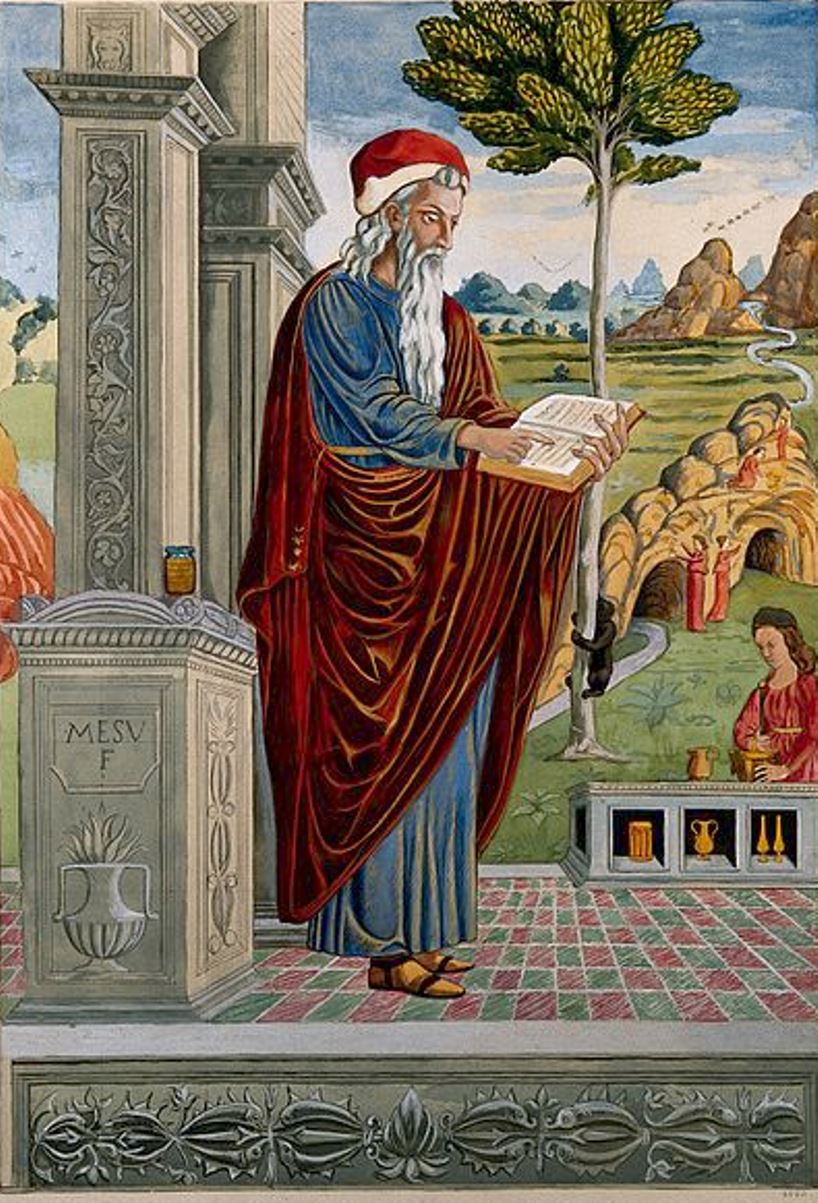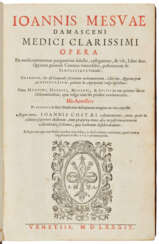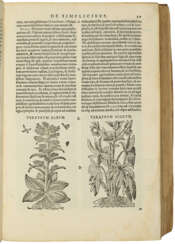масавайх (777 - 857)

Yuhanna ibn Masawaih (Arabic: يوحنا بن ماسويه), also written as Ibn Masawaih, Janus Damascene or Mesue, Masuya (Masawaih, Masawaiyyh, Latin. Janus Damascenus, or Mesue, Masuya, Mesue Major) was a Persian or Assyrian East Syrian Christian physician.
Born into the family of a pharmacist and physician from Gundishapur, Masawaih's father was Assyrian and his mother Slavic. In Baghdad he studied under the Nestorian physician Jabril ibn Buhtishu (8th century). After becoming the director of a hospital in Baghdad, he was also the personal physician of four caliphs.
He wrote medical treatises on a number of topics, including ophthalmology, fever, leprosy, headache, melancholia, dietetics, physician testing, and medical aphorisms. One of the treatises deals with aromatic substances and is entitled On Simple Aromatic Substances. Masawaih translated various Greek medical works into Syriac, but wrote his own work in Arabic.
Many anatomical and medical works are attributed to him, notably The Disease of the Eyes, the earliest systematic treatise on ophthalmology extant in Arabic, and Aphorisms, whose Latin translation was very popular in the Middle Ages. Masawaih's books became a major conduit of Arabic knowledge to the Latin-speaking world and formed the basis of pharmaceutical education in the early modern period. His works, best known for his knowledge of ophthalmology, gynecology, and anatomy, are among the earliest Arabic medical texts available in Europe.


Yuhanna ibn Masawaih (Arabic: يوحنا بن ماسويه), also written as Ibn Masawaih, Janus Damascene or Mesue, Masuya (Masawaih, Masawaiyyh, Latin. Janus Damascenus, or Mesue, Masuya, Mesue Major) was a Persian or Assyrian East Syrian Christian physician.
Born into the family of a pharmacist and physician from Gundishapur, Masawaih's father was Assyrian and his mother Slavic. In Baghdad he studied under the Nestorian physician Jabril ibn Buhtishu (8th century). After becoming the director of a hospital in Baghdad, he was also the personal physician of four caliphs.
He wrote medical treatises on a number of topics, including ophthalmology, fever, leprosy, headache, melancholia, dietetics, physician testing, and medical aphorisms. One of the treatises deals with aromatic substances and is entitled On Simple Aromatic Substances. Masawaih translated various Greek medical works into Syriac, but wrote his own work in Arabic.
Many anatomical and medical works are attributed to him, notably The Disease of the Eyes, the earliest systematic treatise on ophthalmology extant in Arabic, and Aphorisms, whose Latin translation was very popular in the Middle Ages. Masawaih's books became a major conduit of Arabic knowledge to the Latin-speaking world and formed the basis of pharmaceutical education in the early modern period. His works, best known for his knowledge of ophthalmology, gynecology, and anatomy, are among the earliest Arabic medical texts available in Europe.




